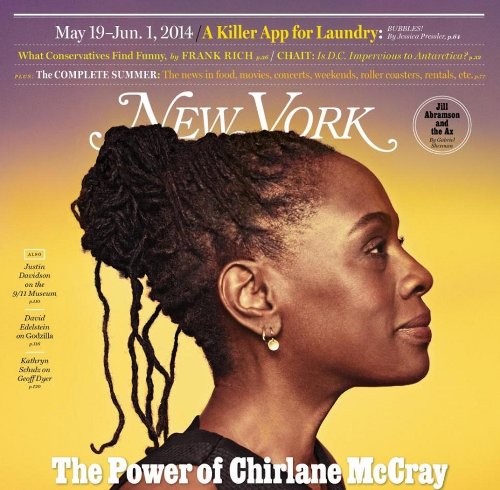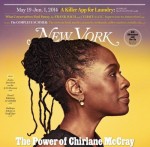
The First Lady of New York City features in this week’s New York Magazine with a cover and in-depth profile. The article and interview, like others, is a direct antithesis to the many other media attempts to paint her a calculating meddler in her husband’s affairs. The profile is a really great read in which McCray talks about her life, career, her family and her view of black womanhood.
On Motherhood.
Chiara was born in December 1994, seven months after the wedding, when Bill was working on Francisco Diaz’s state assembly campaign. McCray had always imagined a life with children, but as with so many women the reality of motherhood—the loss of independence, the relentlessness of the responsibility—was difficult. “I was 40 years old. I had a life. Especially with Chiara—will we feel guilt forever more? Of course, yes. But the truth is, I could not spend every day with her. I didn’t want to do that. I looked for all kinds of reason not to do it. I love her. I have thousands of photos of her—every 1-month birthday, 2-month birthday. But I’ve been working since I was 14, and that part of me is me. It took a long time for me to get into ‘I’m taking care of kids,’ and what that means.”
On Feminism.
For McCray, feminism is not so much about the fulfillment of personal ambition as it is about helping women to get the basic things they need.
“I don’t think it’s about ‘leaning in,’ ” she says. “In this day and age, it comes down to improving life, for girls especially, young girls—improving the numbers of opportunities, the kind of opportunities. But it’s not just about opportunities anymore. Violence against women is a huge issue. A good feminist should be working on that—making the world a safer place for girls and women, wherever they live. Economic opportunity is hugely important. That’s why paid sick leave was so important. But we’ve got so many women who are employed as teachers, nurses, health aides, fast-food workers, and don’t have access to child care, can’t afford child care. I mean, that’s an issue that feminists should be working on. We have to think about the state of women in a more holistic way going forward. We can’t be segregated by class and race as we have been. Because even the women at the top can do something about violence against women, right?”

